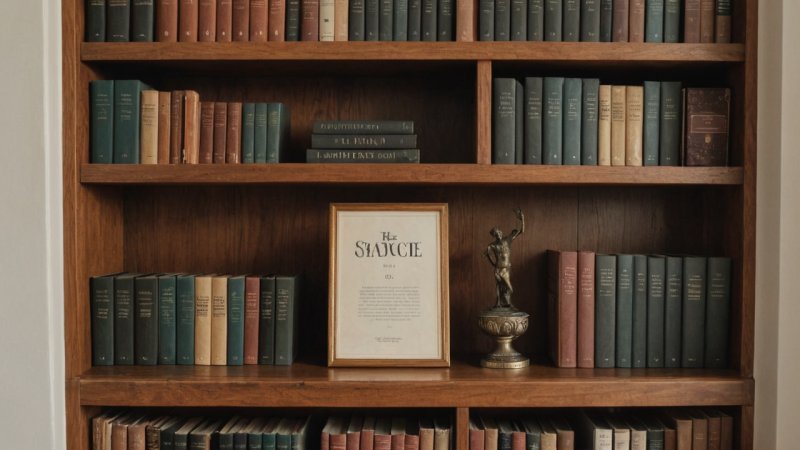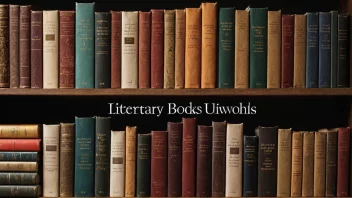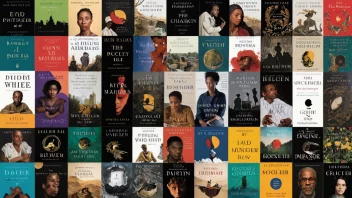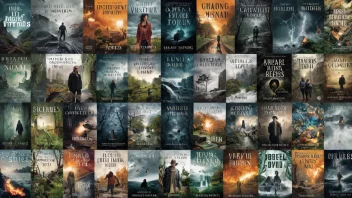Embarking on the journey of collecting classic literature can be one of the most rewarding experiences for any bibliophile. Classics are not merely old books; they are the cornerstones of literary culture, offering profound insights into the human experience across various epochs. They challenge our perceptions, inspire our imaginations, and often serve as a reflection of societal values and struggles. This guide will provide you with a comprehensive roadmap to starting your own classic book collection, exploring essential tips, recommended titles, and the significance of these treasured works.
Understanding What Constitutes a Classic
Before diving into the collection process, it’s crucial to define what a classic is. While opinions may vary, classics are typically characterized by their enduring themes and relevance, their impact on literature and culture, and their ability to resonate with readers across generations. Commonly cited examples include:
- Pride and Prejudice by Jane Austen
- 1984 by George Orwell
- Moby Dick by Herman Melville
- The Great Gatsby by F. Scott Fitzgerald
- To Kill a Mockingbird by Harper Lee
These works have stood the test of time, engaging readers with their complex characters, intricate narratives, and thought-provoking themes.
Deciding on a Focus for Your Collection
Classic literature spans across various genres, including fiction, poetry, drama, and essays. To create a well-rounded collection, consider focusing on specific themes or movements. Here are some suggestions:
By Genre
- Fiction: Explore novels that provide a window into different eras, such as War and Peace by Leo Tolstoy or The Picture of Dorian Gray by Oscar Wilde.
- Poetry: Collect volumes from poets like Emily Dickinson, Robert Frost, or Langston Hughes, whose works have shaped literary expression.
- Drama: Consider collecting plays by Shakespeare, Arthur Miller, or Tennessee Williams, which showcase the human condition through performance.
By Time Period
Focus on particular literary movements or historical periods. For instance, you might opt for:
- The Romantic Era with authors like William Wordsworth and Lord Byron.
- The Modernist movement featuring T.S. Eliot and Virginia Woolf.
- The Harlem Renaissance, highlighting writers such as Zora Neale Hurston and Claude McKay.
Setting a Budget
Classic books can vary widely in price, from affordable paperbacks to rare first editions. Establishing a budget will help guide your purchases and prevent overspending. Consider the following:
- Condition: Used books in good condition are often more affordable than new editions.
- Edition: Collectors may seek out specific editions, like illustrated copies or signed editions, which can be pricier.
- Rarity: First editions or limited prints tend to be more valuable and should be considered if they fit your budget.
Where to Find Classic Books
The next step in building your collection is knowing where to look for these literary gems. Here are some options:
Bookstores
Local independent bookstores often carry a selection of classic literature. You may also find used bookstores with a vast assortment of older titles. Don’t shy away from asking the staff for recommendations or if they have any special sections for classics.
Online Resources
Several online platforms cater to book collectors:
- AbeBooks: A marketplace for new, used, and rare books.
- ThriftBooks: Offers a variety of used books at discounted prices.
- eBay: A platform for bidding on rare editions or purchasing directly from sellers.
Library Sales and Book Fairs
Public libraries frequently hold book sales where you can find classic titles at minimal costs. Additionally, local literary festivals and book fairs often feature vendors specializing in rare and collectible books.
Preserving Your Collection
Once you begin to amass your classic book collection, it’s essential to preserve these works for future enjoyment. Consider the following preservation tips:
- Storage: Keep books in a cool, dry environment, away from direct sunlight to prevent fading and deterioration.
- Caring for Dust Jackets: If you have books with dust jackets, consider using protective covers to maintain their condition.
- Handling: Always handle books with clean hands and consider using bookmarks instead of folding pages to mark your place.
Engaging with Your Collection
A classic book collection is not just about ownership; it's also about engagement and understanding. Here are some ways to deepen your relationship with your collection:
Join a Book Club
Participating in a book club focused on classic literature can provide you with different perspectives and interpretations of the texts. It’s a wonderful way to engage with fellow literature lovers and discuss themes and characters.
Write Reviews
Consider maintaining a reading journal or blogging about your thoughts on each classic you read. This practice not only enhances your understanding but also connects you with the larger literary community.
Attend Literary Events
Look for author readings, lectures, or panel discussions related to classic literature in your area. These events often provide rich insights and opportunities to meet other enthusiasts.
Conclusion
Starting a classic book collection is an enriching endeavor that opens the door to timeless stories and profound themes. By understanding what constitutes a classic, deciding on a focus, setting a budget, knowing where to find books, and preserving your collection, you can create a library that reflects your literary passions. Engaging with your collection through book clubs, reviews, and events further deepens your appreciation for these works. As you grow your collection, remember that the joy of reading and exploring literature is the ultimate reward. Happy collecting!






